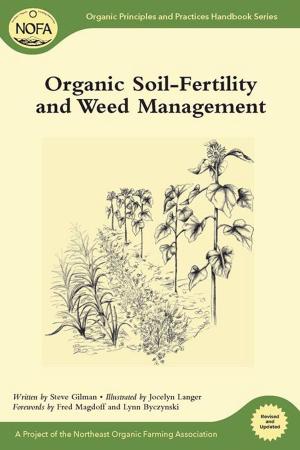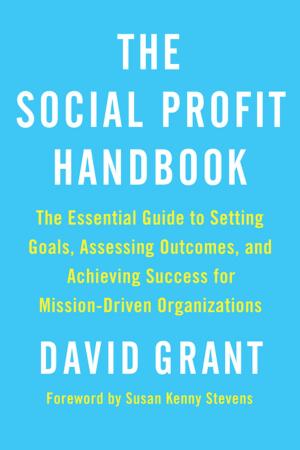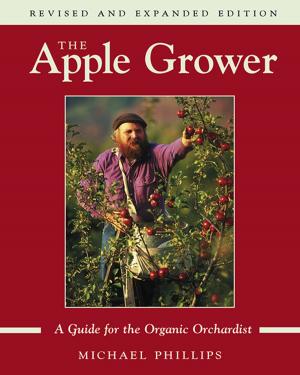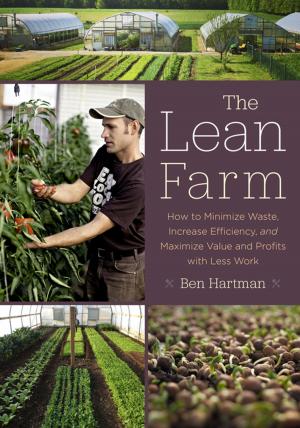The Lean Farm Guide to Growing Vegetables
More In-Depth Lean Techniques for Efficient Organic Production
Nonfiction, Science & Nature, Technology, Agriculture & Animal Husbandry| Author: | Ben Hartman | ISBN: | 9781603587006 |
| Publisher: | Chelsea Green Publishing | Publication: | November 10, 2017 |
| Imprint: | Chelsea Green Publishing | Language: | English |
| Author: | Ben Hartman |
| ISBN: | 9781603587006 |
| Publisher: | Chelsea Green Publishing |
| Publication: | November 10, 2017 |
| Imprint: | Chelsea Green Publishing |
| Language: | English |
At Clay Bottom Farm, author Ben Hartman and staff practice kaizen, or continuous improvement, cutting out more waste—of time, labor, space, money, and more—every year and aligning their organic production more tightly with customer demand. Applied alongside other lean principles originally developed by the Japanese auto industry, the end result has been increased profits and less work.
In this field-guide companion to his award-winning first book, The Lean Farm, Hartman shows market vegetable growers in even more detail how Clay Bottom Farm implements lean thinking in every area of their work, including using kanbans, or replacement signals, to maximize land use; germination chambers to reduce defect waste; and right-sized machinery to save money and labor and increase efficiency. From finding land and assessing infrastructure needs to selling perfect produce at the farmers market, The Lean Farm Guide to Growing Vegetables digs deeper into specific, tested methods for waste-free farming that not only help farmers become more successful but make the work more enjoyable. These methods include:
- Using Japanese paper pot transplanters
- Building your own germinating chambers
- Leaning up your greenhouse
- Making and applying simple composts
- Using lean techniques for pest and weed control
- Creating Heijunka, or load-leveling calendars for efficient planning
Farming is not static, and improvement requires constant change. The Lean Farm Guide to Growing Vegetables offers strategies for farmers to stay flexible and profitable even in the face of changing weather and markets. Much more than a simple exercise in cost-cutting, lean farming is about growing better, not cheaper, food—the food your customers want.
At Clay Bottom Farm, author Ben Hartman and staff practice kaizen, or continuous improvement, cutting out more waste—of time, labor, space, money, and more—every year and aligning their organic production more tightly with customer demand. Applied alongside other lean principles originally developed by the Japanese auto industry, the end result has been increased profits and less work.
In this field-guide companion to his award-winning first book, The Lean Farm, Hartman shows market vegetable growers in even more detail how Clay Bottom Farm implements lean thinking in every area of their work, including using kanbans, or replacement signals, to maximize land use; germination chambers to reduce defect waste; and right-sized machinery to save money and labor and increase efficiency. From finding land and assessing infrastructure needs to selling perfect produce at the farmers market, The Lean Farm Guide to Growing Vegetables digs deeper into specific, tested methods for waste-free farming that not only help farmers become more successful but make the work more enjoyable. These methods include:
- Using Japanese paper pot transplanters
- Building your own germinating chambers
- Leaning up your greenhouse
- Making and applying simple composts
- Using lean techniques for pest and weed control
- Creating Heijunka, or load-leveling calendars for efficient planning
Farming is not static, and improvement requires constant change. The Lean Farm Guide to Growing Vegetables offers strategies for farmers to stay flexible and profitable even in the face of changing weather and markets. Much more than a simple exercise in cost-cutting, lean farming is about growing better, not cheaper, food—the food your customers want.















